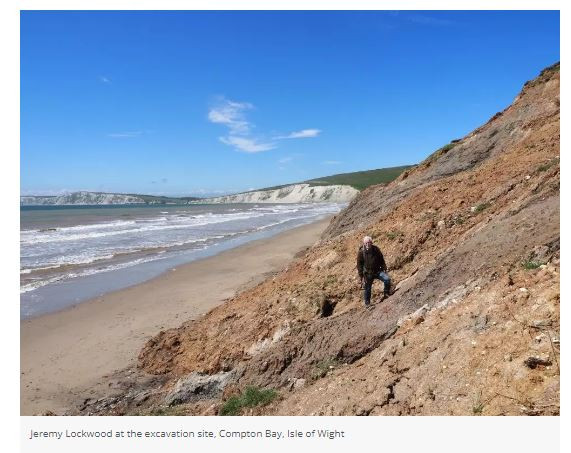It weighed as much as a large male American bison, about 900 kilograms, and probably lived in a herd
The remains of a herbivorous dinosaur estimated to have lived around 125 million years ago have been found on the Isle of Wight in England, with scientists believing it to be the most complete specimen found in Britain for a century.
This herbivorous dinosaur, which weighed as much as a large male American bison, about 900 kilograms, probably lived in a herd, said Jeremy Lockwood, a PhD candidate at the University of Portsmouth who was involved in the excavation.
The dinosaur’s remains, 149 bones, were found on the rocks of Compton Bay on the Isle of Wight, off the south coast of England, in 2013 by the late fossil collector Nick Chase. However, because almost the entire skeleton was found, it took Lockwood and his colleagues several years to prepare the dinosaur for analysis.
It was named “Comptonatus chasei”, as a tribute to Chase.
“Nick had a knack for finding dinosaur bones (…) this is an awesome find,” commented Lockwood.
“It helps us understand more about the different types of dinosaurs that lived in England in the early Cretaceous period,” he explained.
On the same island, in 2022, the remains of a carnivorous dinosaur, larger than any other found in all of Europe, which also lived in the Cretaceous period, were discovered.
Source: Skai
I have worked as a journalist for over 10 years, and my work has been featured on many different news websites. I am also an author, and my work has been published in several books. I specialize in opinion writing, and I often write about current events and controversial topics. I am a very well-rounded writer, and I have a lot of experience in different areas of journalism. I am a very hard worker, and I am always willing to put in the extra effort to get the job done.












